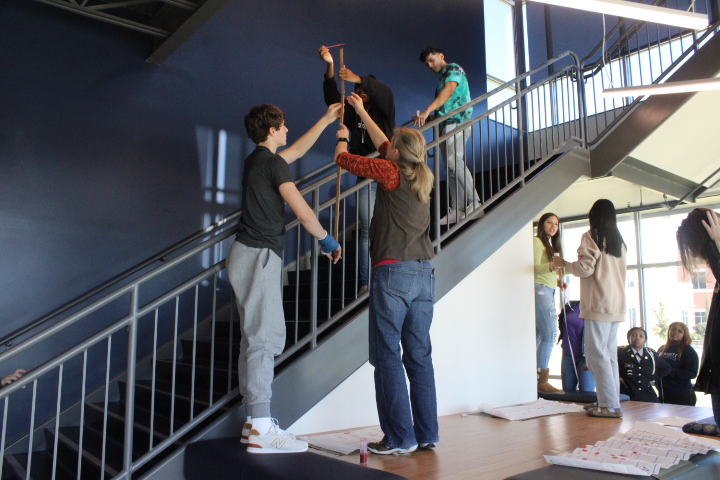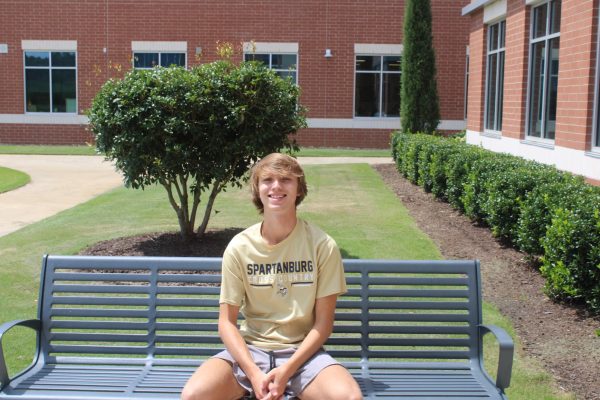Criminally Smart
Forensics classes work to learn about the world of criminal investigation
Rebecca Gentry’s forensics class works on a lab by testing blood splatter.
February 8, 2023
The broad study of science can be conducted in countless ways, exploring a variety of different sections in the field. At Spartanburg High School, students have the opportunity to work on a field of science that is incredibly prevalent and important in today’s world: forensics. This field of study can be seen everywhere whether it is watching a news report or driving past a crime scene in a local restaurant.
This class allows for the study of various aspects of how crimes are committed and how they are inspected by investigators. Combining different aspects of science, the class dives into the biological aspect of investigation in DNA research and even the psychological perspectives held by criminals. The class learns about these topics by participating in interactive experiences, listening to podcasts and watching documentaries of crime cases nearby.
Michael Pedone (12) finds that learning what goes in the mind of killers is one of his favorite parts of the class.
“My favorite activity that we do is probably the labs about blood and fingerprints, but I also really like watching the true crime videos. I definitely liked the arson unit more than any other topic that we’ve covered,” Pedone said.
Forensics is taught heavily through use of labs, with students putting themselves in the shoes of the investigators that they’ve studied all year. These labs, such as the crime scene lab in which students assessed and even made their own mock crime scenes, is used as an incredible tool to engage the class in the topics being covered.
Benjamin Marine (11) thinks that the labs are very useful in helping him remember different concepts.
“I really enjoyed the hair unit; I had no clue that hair could be as useful to forensic investigations as it is,” Marine said.
The class covers the topics of fingerprint analysis, behavioral profiling, toxicology, DNA, hair and fibers, handwriting, serology, arson and even ballistics. These typically taboo topics for school are allowed to be freely explored in this class, engaging students by the seemingly unusual ideas.
Taylor Coggins is one of the forensics teachers and loves seeing how invested her students are in the class.
“It’s not a typical class- we talk about murders, serial killers, current events, blood, etc. The students in this class are interested in these types of things so we tend to have awesome discussions. We get to see a lot of interesting things in this class, and everyone has a unique perspective to offer,” Coggins said.





